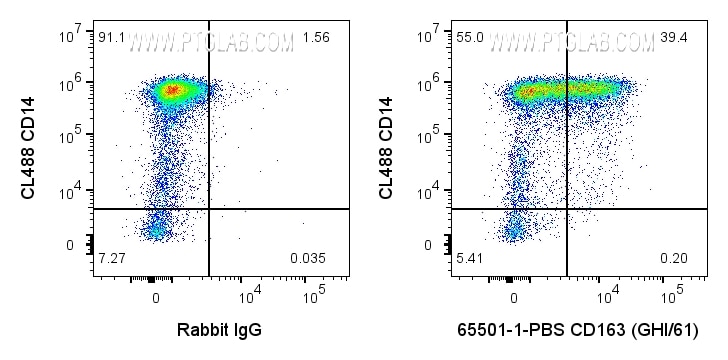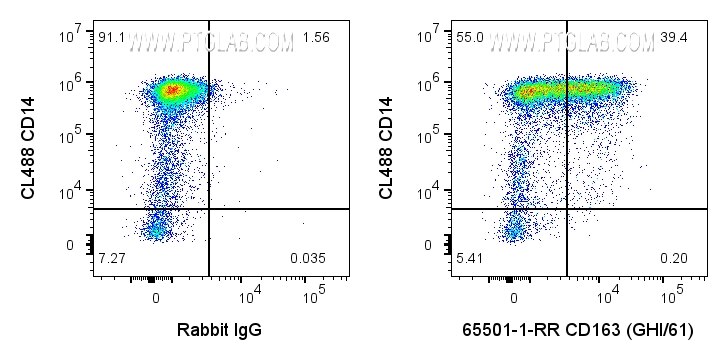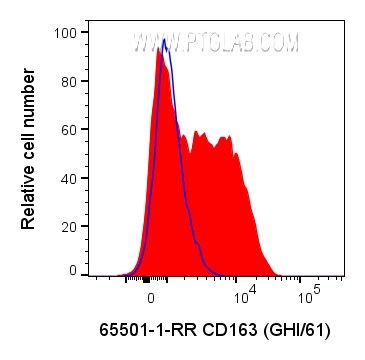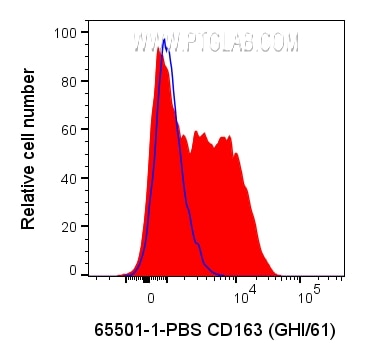Tested Applications
| Positive FC detected in | human PBMCs |
Recommended dilution
| Application | Dilution |
|---|---|
| Flow Cytometry (FC) | FC : 0.2 ug per 10^6 cells in 100 μl suspension |
| This reagent has been tested for flow cytometric analysis. It is recommended that this reagent should be titrated in each testing system to obtain optimal results. | |
Product Information
65501-1-PBS targets CD163 in FC applications and shows reactivity with human samples.
| Tested Reactivity | human |
| Host / Isotype | Rabbit / IgG |
| Class | Recombinant |
| Type | Antibody |
| Immunogen |
Glycoprotein preparation from hairy cell leukemia spleen Predict reactive species |
| Full Name | CD163 molecule |
| Calculated Molecular Weight | 1156 aa, 125 kDa |
| GenBank Accession Number | BC051281 |
| Gene Symbol | CD163 |
| Gene ID (NCBI) | 9332 |
| ENSEMBL Gene ID | ENSG00000177575 |
| Conjugate | Unconjugated |
| Form | Liquid |
| Purification Method | Affinity purification |
| UNIPROT ID | Q86VB7 |
| Storage Buffer | PBS only, pH 7.3. |
| Storage Conditions | Store at -80°C. Stable for one year after shipment. |
Background Information
CD163, also known as M130, is a membrane glycoprotein that belongs to the scavenger receptor superfamily (PMID: 8370408). It is an acute phase-regulated and signal-inducing macrophage protein expressed exclusively in monocytes and tissue macrophages (PMID: 11196644). CD163 mediates endocytosis of haptoglobin-haemoglobin complexes (PMID: 11196644). The uptake of haptoglobin by macrophages contributes to the recycling of iron and also to the inflammatory response (PMID: 22900885). Soluble CD163 (sCD163), as a result of ectodomain shedding during inflammatory activation of macrophages, circulates in blood and has been suggested as a plasma/serum marker for macrophage activity (PMID: 12570164).
Protocols
| Product Specific Protocols | |
|---|---|
| FC protocol for CD163 antibody 65501-1-PBS | Download protocol |
| Standard Protocols | |
|---|---|
| Click here to view our Standard Protocols |














